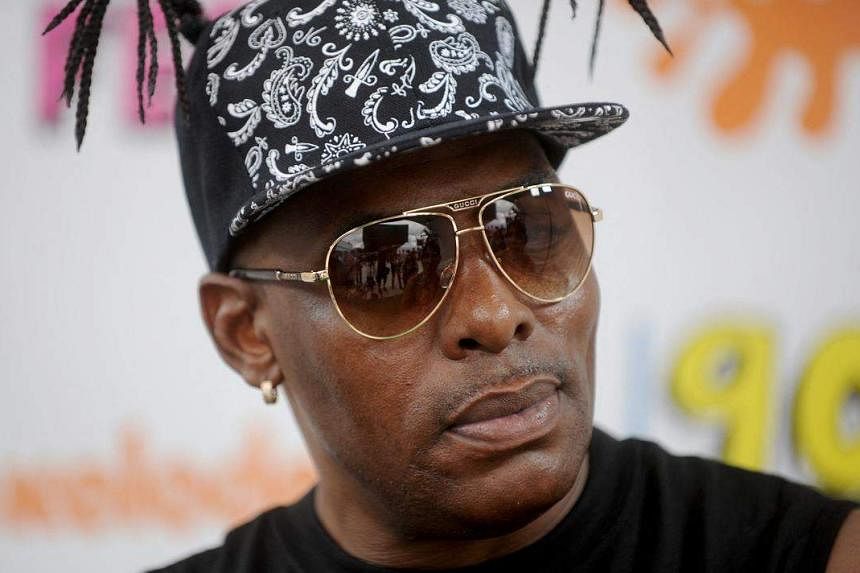LOS ANGELES - Coolio, the American rapper whose gritty music and anthemic hits like Gangsta’s Paradise (1995) helped define hip-hop in the 1990s, died on Wednesday in Los Angeles. He was 59.
His longtime manager, Jarez Posey, confirmed his death.
Posey, who worked with the rapper for more than 20 years, said he was told that Coolio was at a friend’s house in Los Angeles when he went to the bathroom.
When Coolio did not return for a “long time”, his friends broke down the door and found him on the floor, Posey said.
Paramedics were called and attempted to resuscitate Coolio, but the star died at about 5pm. No cause was given.
Coolio, whose legal name was Artis Leon Ivey Jr, won the Grammy for Best Rap Solo Performance in 1996 for Gangsta’s Paradise, which was also nominated for Record of the Year. It was certified triple-platinum by the Recording Industry Association of America.
“Coolio still builds his raps on recognisable 1970s oldies, and he delivers intricate, syncopated rhymes as if they were conversation,” music critic Jon Pareles wrote in a review in The New York Times in 1995, noting that Gangsta’s Paradise uses “the sombre minor chords” of Pastime Paradise (1976), by singer Stevie Wonder.
The song nearly did not make it into the hit film Dangerous Minds (1995), critic Caryn James wrote for The New York Times in 1996: “Coolio’s song Gangsta’s Paradise, a late addition to Dangerous Minds, turned a preachy Michelle Pfeiffer film about an inner-city teacher into a hit that sounded fresher than it really was.”
Coolio’s other hits included 1, 2, 3, 4 (Sumpin’ New), from the album Gangsta’s Paradise (1995); and C U When U Get There, from his third album, My Soul (1997).
But none of those could match the success of Gangsta’s Paradise, a song that, with its piercing beat and ominous background vocals, became instantly distinguishable for millions of 1990s rap fans, especially with its memorable opening verses: “As I walk through the valley of the shadow of death, I take a look at my life and realise there’s nothin’ left.”
The song would expand the commercial possibilities of hip-hop, but Coolio would later say that he sometimes lamented how the track seemed to overshadow his other bodies of work, particularly follow-up albums.
Still, he told PopkillerTV in 2018 that the song had taken him on “a great ride”. Its popularity has endured for decades, with the music video garnering a rare billion-plus views on YouTube.
Artis Leon Ivey Jr was born on Aug 1, 1963. He grew up in Compton, California, a place known for producing some of hip-hop’s most successful artistes, such as Dr Dre and Kendrick Lamar.
He told The Independent in 1997 that as a child, he would play board games with his mother, to whom he later dedicated his success.
After a turbulent youth – he told The Independent he was a teenage gangbanger, juvenile offender and drug addict – Coolio worked as a volunteer firefighter.
When he embarked on his music career, he quickly gained a following among the rapidly growing audience of hip-hop fans, who had been enraptured by the music of Tupac Shakur and the Notorious B.I.G. He went on to sell more than 17 million records.
Coolio later became a fixture on reality TV, starting with Coolio’s Rules, a 2008 series that focused on his personal life and his quest to find love in Los Angeles.
A complete list of survivors was not immediately available. Coolio had four children with Josefa Salinas, whom he married in 1996 and later divorced.
Years after he topped the charts and solidified himself as a mainstream artiste, Coolio confronted legal trouble, pleading guilty to firearms and drug charges.
The rapper, who struggled with asthma all his life, served as the spokesman for the Asthma and Allergy Foundation of America, according to his official online biography. At a 2016 performance in Brooklyn, New York, Page Six reported, he had an asthma attack and was saved by a fan who had an inhaler.
In recent years, Coolio had become aware of his indelible mark on hip-hop.
He said in 2018 that after years of lamenting over his struggles in the music industry, he had realised that “people would kill to take my place”.
“I’m sure after I’m long gone from this planet, and from this dimension,” he said, “people will come back and study my body of work.” NYTIMES

